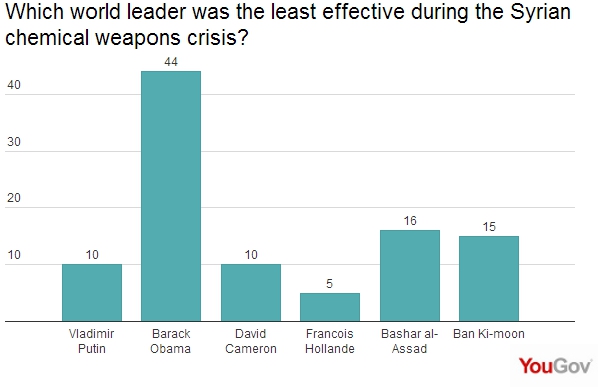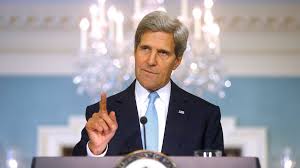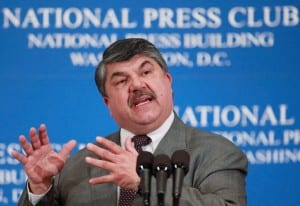The Illusion of Democracy
By David Cromwell, Media Lens

CBS Evening News anchor Scott Pelley: overpaid conveyor of evasions, lies, and superficialities, for the most part. The norm in American news. No hope of salvation in such “news” services.
Liberal Journalism, Wikileaks And Climate Deceptions
In an era of permanent war, economic meltdown and climate ‘weirding’, we need all the champions of truth and justice that we can find. But where are they? What happened to trade unions, the green movement, human rights groups, campaigning newspapers, peace activists, strong-minded academics, progressive voices? We are awash in state and corporate propaganda, with the ‘liberal’ media a key cog in the apparatus. We are hemmed in by the powerful forces of greed, profit and control. We are struggling to get by, never mind flourish as human beings. We are subject to increasingly insecure, poorly-paid and unfulfilling employment, the slashing of the welfare system, the privatisation of the National Health Service, the erosion of civil rights, and even the criminalisation of protest and dissent.
The pillars of a genuinely liberal society have been so weakened, if not destroyed, that we are essentially living under a system of corporate totalitarianism. In his 2010 book, Death of the Liberal Class, the former New York Times reporter Chris Hedges notes that:
‘The anemic liberal class continues to assert, despite ample evidence to the contrary, that human freedom and equality can be achieved through the charade of electoral politics and constitutional reform. It refuses to acknowledge the corporate domination of traditional democratic channels for ensuring broad participatory power.’ (p. 8)
Worse, the liberal class has: ‘lent its voice to hollow acts of political theater, and the pretense that democratic debate and choice continue to exist.’ (pp. 9-10)
This pretense afflicts all the major western ‘democracies’, including the UK, and it is a virus that permeates corporate news reporting, not least the BBC. For example, the BBC’s political editor Nick Robinson has a new book out with the cruelly apt title, ‘Live From Downing Street’. Why apt? Because Downing Street is indeed the centre of the political editor’s worldview. As he explains in the book’s foreword:
‘My job is to report on what those in power are thinking and doing and on those who attempt to hold them to account in Parliament.’ (Added emphasis).
Several observations spring to mind:
1. How does Nick Robinson know what powerful politicians are thinking?
2. Does he believe that any discrepancy between what they really think and what they tell him and his media colleagues is inconsequential?
3. Why does the BBC’s political editor focus so heavily on what happens in Parliament? What about the wider spectrum of opinion outside Parliament, so often improperly represented by MPs, if at all? What about attempts in the wider society to hold power to account, away from Westminster corridors and the feeble, Whip-constrained platitudes of party careerists? No wonder Robinson might have regrets over Iraq, as he later concedes when he says:
‘The build-up to the invasion of Iraq is the point in my career when I have most regretted not pushing harder and not asking more questions.’ (p. 332).
4. Thus, right from the start of his book Robinson concedes unwittingly that his journalism cannot, by definition, be ‘balanced’.
But, of course, corporate media professionals have long propped up the illusion that the public is offered an ‘impartial’ selection of facts, opinions and perspectives from which any individual can derive a well-informed world view. Simply put, ‘impartiality’ is what the establishment says is impartial.
The journalist and broadcaster Brian Walden once said: ‘The demand for impartiality is too jealously promoted by the political parties themselves. They count balance in seconds and monitor it with stopwatches.’ (Quoted, Tim Luckhurst, ‘Time to take sides’, Independent, July 1, 2003). This nonsense suggests that media ‘impartiality’ means that one major political party receives identical, or at least similar, coverage to another. But when all the major political parties have almost identical views on all the important issues, barring small tactical differences, how can this possibly be deemed to constitute genuine impartiality?

The major political parties offer no real choice. They all represent essentially the same interests crushing any moves towards meaningful public participation in the shaping of policy; or towards genuine concern for all members of society, particularly the weak and the vulnerable.
The essential truth was explained by political scientist Thomas Ferguson in his book Golden Rule (University of Chicago Press, 1995). When major backers of political parties and elections agree on an issue – such as international ‘free trade’ agreements, maintaining a massive ‘defence’ budget or refusing to make the necessary cuts in greenhouse gas emissions – then the parties will not compete on that issue, even though the public might desire a real alternative.
US media analyst Robert McChesney observes:
‘In many respects we now live in a society that is only formally democratic, as the great mass of citizens have minimal say on the major public issues of the day, and such issues are scarcely debated at all in any meaningful sense in the electoral arena.’ (McChesney, Rich Media, Poor Democracy, The New Press, 2000, p. 260).
As the Washington Post once noted, inadvertently echoing Ferguson’s Golden Rule, modern democracy works best when the political ‘parties essentially agree on most of the major issues’. The Financial Times put it more bluntly: capitalist democracy can best succeed when it focuses on ‘the process of depoliticizing the economy.’ (Cited by McChesney, ibid., p. 112).
The public recognises much of this for what it is. Opinion polls indicate the distrust they feel for politicians and business leaders, as well as the journalists who all too frequently channel uncritical reporting on politics and business. A 2009 survey by the polling company Ipsos MORI found that only 13 per cent of the British public trust politicians to tell the truth: the lowest rating in 25 years. Business leaders were trusted by just 25 per cent of the public, while journalists languished at 22 per cent.
And yet recall that when Lord Justice Leveson published his long-awaited report into ‘the culture, practices and ethics of the British press’ on November 29, he made the ludicrous assertion that ‘the British press – I repeat, all of it – serves the country very well for the vast majority of the time.’
That tells us much about the nature and value of his government-appointed inquiry.
The Flagship Of British Liberal Journalism On The Rocks
Damning indictments of the liberal media were self-inflicted by its vanguard newspaper, the Guardian, in two recent blows. First, consider Decca Aitkenhead’s hostile interview with Wikileaks co-founder Julian Assange in which he is described as a ‘fugitive’ who has been ‘holed up’ in the Ecuadorian embassy in London for six months. Aitkenhead casts doubts over his ‘frame of mind’, with a sly suggestion that he might even be suffering from ‘paranoia’. She claims Assange ‘seems more like an in-patient than an interviewee […]. If you have ever visited someone convalescing after a breakdown, his demeanour would be instantly recognisable. Admirers cast him as the new Jason Bourne, but in these first few minutes I worry he may be heading more towards Miss Havisham.’
He ‘talks in the manner of a man who has worked out that the Earth is round, while everyone else is lumbering on under the impression that it is flat’. Aitkenhead continues: ‘it’s hard to read his book without wondering, is Assange a hypocrite – and is he a reliable witness?’ Indeed ‘some of his supporters despair of an impossible personality, and blame his problems on hubris.’
Aitkenhead asks him ‘about the fracture with close colleagues at WikiLeaks’ and wants him to ‘explain why so many relationships have soured.’ She gives a potted, one-sided history of why the relationship between the Guardian and Wikileaks ‘soured’, saying dismissively that ‘the details of the dispute are of doubtful interest to a wider audience’.
The character attack continues: ‘the messianic grandiosity of his self-justification is a little disconcerting’ and ‘he reminds me of a charismatic cult leader’. Aitkenhead concludes: ‘The only thing I could say with confidence is that he is a control freak.’
The hostile, condescending and flippant tone and content contrast starkly with the more respectable treatment afforded to establishment interviewees such as Michael Gove, Michael Heseltine, Christopher Meyer and Alistair Darling. Aitkenhead almost fawns over Darling, then the Chancellor:
‘His dry, deadpan humour lends itself to his ironic take on the grumpy old man, which he plays with gruff good nature. […] He reminds me of childhood friends’ fathers who seemed fearsome until we got old enough to realise they were being funny.’
Darling says that ‘I was never really interested in the theory of achieving things, just the practicality of doing things.’ Aitkenhead sighs:
‘One might say this has been Darling’s great strength. The pragmatic clarity made him a highly effective minister… But it may well also be his weakness – for at times he seems almost too straightforward, even high-minded, for the low cunning of political warfare.’
Sometimes people would approach the Chancellor in public and demand that he fix the economy. Darling recalls that one chap accosted him at a petrol station:
‘ “I know it’s to do with oil prices – but what are you going to do about it?” People think, Well, surely you can do something, you are responsible – so of course it reflects on me.’
Aitkenhead asks him sweetly: ‘Is it painful to be blamed so personally?’
Two days after the Guardian’s hit job on Julian Assange, it was followed by the paper’s low-key announcement of its public poll for person of the year: Bradley Manning, the US soldier suspected of leaking state secrets to Wikileaks. The implication of the Guardian’s grudging note was that Manning had only won because of ‘rather fishy voting patterns’:
‘Manning secured 70 percent of the vote, the vast majority of them coming after a series of @Wikileaks tweets. Project editor Mark Rice-Oxley said: “It was an interesting exercise that told us a lot about our readers, our heroes and the reasons that people vote.”’
Although the short entry appeared in the Guardian’s online news blog, there was no facility for adding reader comments, thus avoiding any possible additional public embarrassment. Perhaps the paper is mortified that it has been shown up by Wikileaks and Manning for not doing its job of holding power to account.
As Jonathan Cook, a former Guardian journalist, wrote last year:
‘The Guardian, like other mainstream media, is heavily invested – both financially and ideologically – in supporting the current global order. It was once able to exclude and now, in the internet age, must vilify those elements of the left whose ideas risk questioning a system of corporate power and control of which the Guardian is a key institution.’
So much for the British flagship of liberal journalism then.
Climate Betrayal And Deceptions
One of the biggest failures of the liberal class has been its inability to see, far less challenge, the inherently destructive and psychopathic nature of corporations.
We once wrote to Stephen Tindale, then executive director of Greenpeace UK, and asked him why they did not address this in their campaigning:
‘Let us see Greenpeace (and other pressure groups) doing more to oppose, not so much what corporations do, but what they are; namely, undemocratic centralised institutions wielding illegitimate power.’ (Email, January 7, 2002)
Ignoring or missing the point, Tindale replied: ‘We will continue to confront corporations where necessary […] we are an environmental group, not an anti-corporate group. We will therefore work with companies when we can do so to promote our campaign goals.’ (Email, January 28, 2002)
Corporate Watch has pointedly asked of nongovernmental organisations, such as Greenpeace: ‘Why are NGOs getting involved in these partnerships?’ One important factor, it seems, is ‘follow the leader’. Corporate Watch notes:
‘For many NGOs, the debate on whether or not to engage with companies is already over. The attitude is “all the major NGOs engage with companies so why shouldn’t we?” ‘ (Corporate Watch, ‘What’s Wrong with Corporate Social Responsibility?’, 2006, p. 2).
The sad reality is that Greenpeace and other major NGOs accept the ideological premise that the corporate sector can be persuaded to act benignly. To focus instead on the illegitimate power and inherent destructive nature of the corporation is a step too far for today’s emasculated ‘pressure groups’, whether they are working on environmental protection, human rights or fighting poverty.
Adding to the already overwhelming evidence of corporate power protecting itself at almost any cost, a recent book titled Secret Manoeuvres in the Dark (Pluto Books, 2012) exposes the covert methods of corporations to evade democratic accountability and to undermine legitimate public protest and activism. Using exclusive access to previously confidential sources, Eveline Lubbers, an independent investigator with SpinWatch.org, provides compelling case studies on companies such as Nestlé, Shell and McDonalds. ‘The aim of covert corporate strategy’, she observes, ‘is not to win an argument, but to contain, intimidate and ultimately eliminate opposition.’
Lubbers also points out that dialogue, one of the key instruments of ‘corporate social responsibility’, is exploited by big business ‘as a crucial tool to gather information, to keep critics engaged and ultimately to divide and rule, by talking to some and demonizing others.’ Lubbers’ book, then, is yet another exposure of corporate efforts to prevent civil society from obtaining real power.
And yet virtually every day comes compelling evidence showing how disastrous this is for humanity. A new scientific report this month reveals that global carbon emissions have hit a record high:
‘In a development that underscores the widening gap between the necessary steps to limit global warming and the policies that governments are actually putting into place, a new report shows that global carbon dioxide (CO2) emissions will likely reach a record high of 35.6 billion tonnes in 2012, up 2.6 percent from 2011.’
This is a disaster for climate stability. Meanwhile, a new study based on 20 years of satellite observations shows that the planet’s polar ice sheets are already melting three times faster than they were in the the 1990s.
In September, senior NASA climate scientist James Hansen had warned of a ‘planetary emergency’ because of the dangerous effects of Arctic ice melt, including methane gas released from permafrost regions currently under ice. ‘We are in a planetary emergency,’ said Hansen, decrying ‘the gap between what is understood by scientific community and what is known by the public.’
As ever, the latest UN Climate Summit in Doha was just another talking shop that paid lip service to the need for radical and immediate action in curbing greenhouse gas emissions in the face of climate chaos.
The failure of the liberal class to rein in, or seriously challenge, corporate power is typified by this appalling gap between climate change rhetoric and reality. The rhetoric is typified by the political call to keep the average global temperature rise to under 2 degrees Celsius by 2100. The appalling reality is that the rise is likely to be in the region of 4-6 deg C (but potentially much higher if runaway global warming kicks in with the release of methane). This gap – actually a chasm of likely tragic proportions – is graphically depicted by climate scientist Professor Kevin Anderson of Manchester University in a recent powerful and disturbing presentation.
Anderson cites an unnamed ‘very senior political scientist’ who often advises the government. This adviser says:
‘Too much has been invested in two degrees C for us to say it is not possible. It would undermine all that has been achieved. It would give a sense of hopelessness that we may as well just give in.’
Anderson also reports that on the eve of the UN Climate Summit in Copenhagen in 2010, he had a 20-minute meeting in Manchester with Ed Miliband, then the of Secretary of State for Energy and Climate Change. Miliband told Anderson:
‘Our position is challenging enough. I can’t go with the message that two degrees C is impossible – it’s what we’ve all worked towards.’
Anderson also relates that he attended a Chatham House event where the message from both ‘a very senior government scientist and someone very senior from an oil company’ – which he strongly hinted was Shell – was this:
‘[We] think we’re on for 4 to 6 degrees C but we just can’t be open about it.’
Anderson warns that this deception is ‘going on all the time behind the scenes’ and ‘that somehow we can’t tell the public’ the truth. The consequences could be terminal for large swathes of humanity and planetary ecosystems.
In short, we desperately need to hear the truth from people like Kevin Anderson, Julian Assange and Bradley Manning.
To return to Chris Hedges on ‘the death of the liberal class’:
‘The liberal class is expected to mask the brutality of imperial war and corporate malfeasance by deploring the most egregious excesses while studiously refusing to question the legitimacy of the power elite’s actions and structures. When dissidents step outside these boundaries, they become pariahs. Specific actions can be criticized, but motives, intentions, and the moral probity of the power elite cannot be questioned.’ (Hedges, op. cit., pp. 152-153)
and he warns:
‘We stand on the verge of one of the bleakest periods in human history, when the bright lights of civilizations will blink out and we will descend for decades, if not centuries, into barbarity. The elites, who successfully convinced us that we no longer possessed the capacity to understand the revealed truths presented before us or to fight back against the chaos caused by economic and environmental catastrophe, will use their resources to create privileged little islands where they will have access to security and goods denied to the rest of us.’ (p. 197)
We must have the vision to imagine that, however bleak things appear now, things can change: if we put our minds to it and work together.
________
DAVID CROMWELL is a founding editor of Media Lens, Britain’s leading progressive media watch organization.
______________________
Nauseated by the
vile corporate media?
Had enough of their lies, escapism,
omissions and relentless manipulation?
Send a donation to
The Greanville Post–or
But be sure to support YOUR media.
If you don’t, who will?






